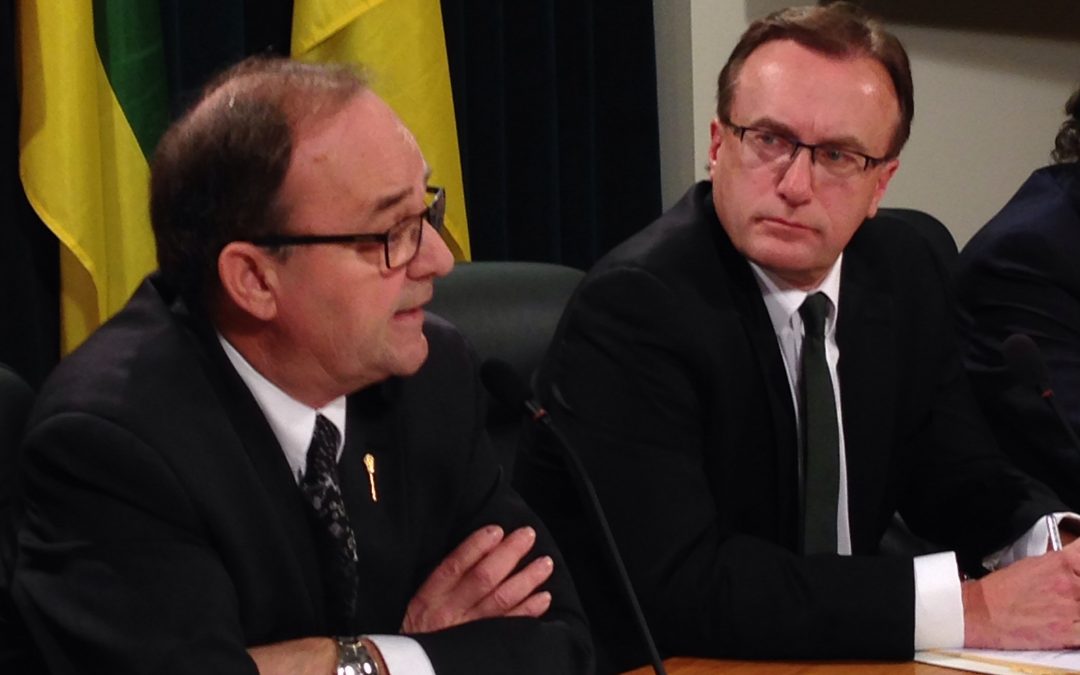Environment Minister Herb Cox (left) and Government Relations Minister Jim Reiter address media about changes to wildfire policy. Photo by Manfred Joehnck.
The provincial government has unveiled a new plan in anticipation of what could be another bad year for wildfires in Saskatchewan.
Environment Minister Herb Cox and Government Relations Minister Jim Reiter unveiled the details during a morning news conference at the Saskatchewan Legislature.
Among the improvements are more manpower, more equipment, more training, a more co-ordinated evacuation plan and the elimination of the 20-kilometre zone before a fire is attacked.
The so-called “Let it Burn” policy came under much criticism last year from communities who said crews waited too long before moving in.
More than 13,000 people were evacuated from their homes in what was the largest evacuation in the province’s history.
In all, there were nearly 750 wildfires, almost twice the previous year’s total.
The army had to be called in and it cost nearly $100 million to fight the fires.
The new wildfire strategy follows six months of public consultations with stakeholders in the north as well as an online survey. The following are some of the changes that will be implemented:
-Hiring eight additional firefighting crews in northern Saskatchewan.
-Improving training capacity.
-Purchasing new equipment.
-Upgrading weather stations.
-Enhancing analysis and communication systems.
-Clarifying policies and roles for large-scale emergency situations.
-Bringing in two additional aircraft earlier.
-Eliminating the 20-kilometre zone strategy.
-Thinning or removing vegetation in 15 locations to reduce the threat of fires.
-Further engagement with northern leaders and First Nations.
Athabasca NDP MLA Buckley Belanger says the government’s announcement is insulting to northerners because there is no mention of money.
“The critical flaw in what was announced today is that the province would not release any numbers attached to each of these initiatives, in terms of budget commitments,” he says. “And they’ve said they’re not going to do that until after the next election. Well, to me, I think that’s just simply posturing.”
Just last week, the Water Security Agency released its spring runoff forecast. It predicted below normal runoff in much of the province, including the north, because of less than average snowfall and a warmer than usual winter.
That could create dry conditions, an early spring, and the threat of another severe forest fire season in Saskatchewan.
